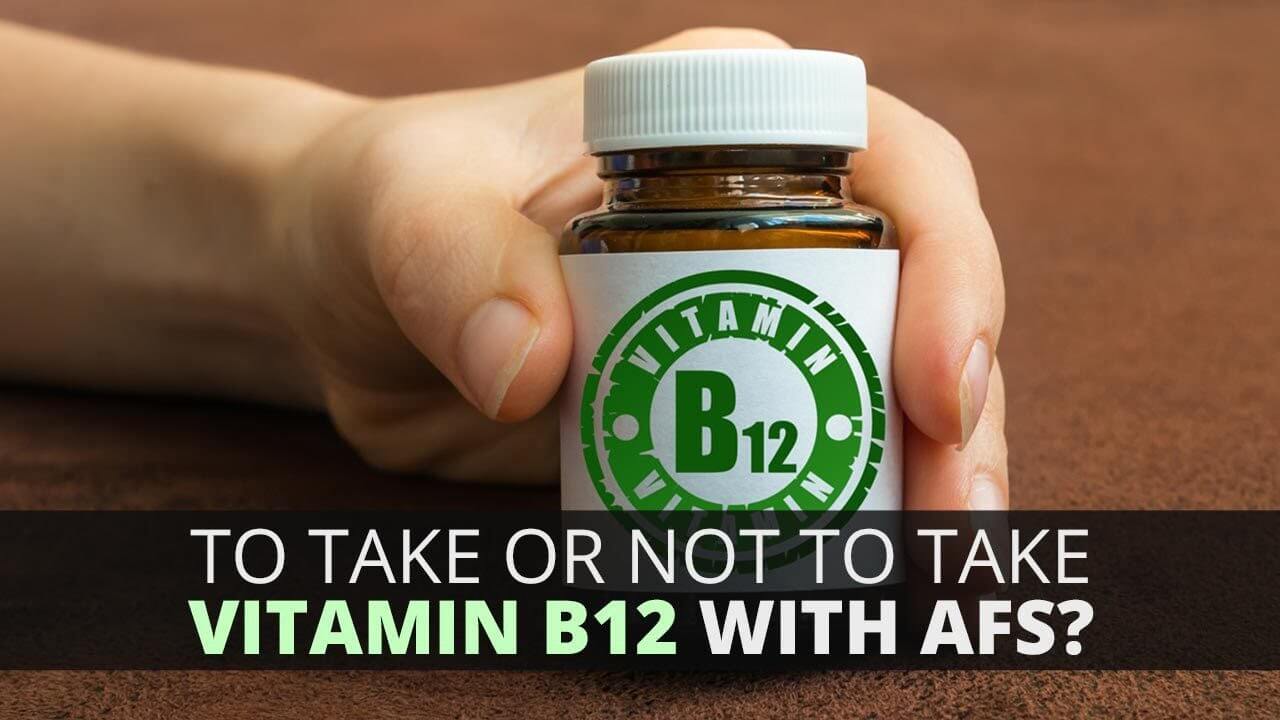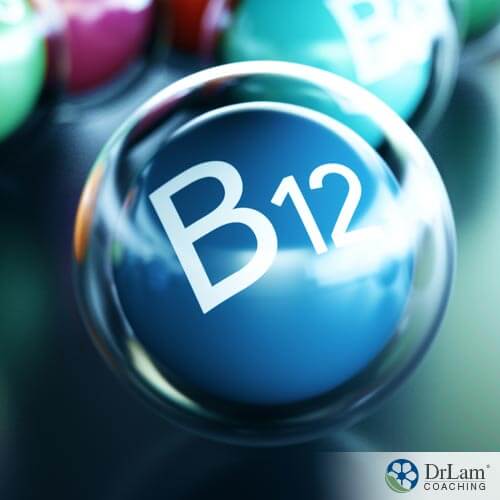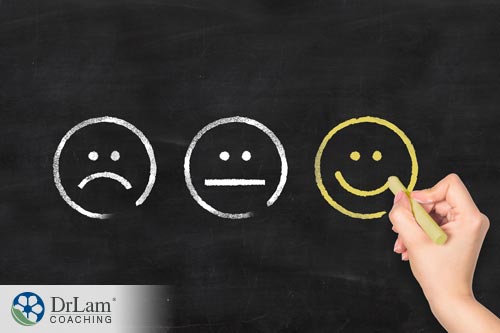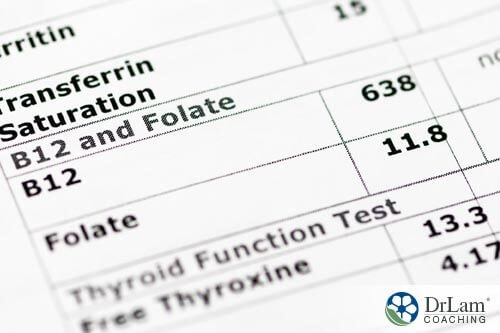
From enhancing mood, producing red blood cells, to addressing fatigue, vitamin B12 has a multitude of crucial health-promoting roles in your body. Any deficiency in this vitamin can give rise to a set of unpleasant symptoms. Estimates reveal that over 39 percent of the people in the U.S have a vitamin B deficiency. Maintaining the recommended level of this vitamin in your body can reduce your risk of diseases, boost your cognitive ability, and promote excellent health and wellbeing.
 Water-soluble vitamin B12 is the largest and most structurally complicated of all vitamins. It exists in many forms and contains cobalt—compounds containing this vitamin are collectively referred to as cobalamins. Some forms of vitamin B can be naturally found in certain foods and are also available as dietary supplements. The active states of vitamin B12—how it is found in the human metabolism—are 5-deoxyadenosylcobalamin and methylcobalamin.
Water-soluble vitamin B12 is the largest and most structurally complicated of all vitamins. It exists in many forms and contains cobalt—compounds containing this vitamin are collectively referred to as cobalamins. Some forms of vitamin B can be naturally found in certain foods and are also available as dietary supplements. The active states of vitamin B12—how it is found in the human metabolism—are 5-deoxyadenosylcobalamin and methylcobalamin.
Vitamin B12 plays a significant role in several functions in the body including the formation of red blood cells, DNA synthesis, neurological functions, and cell metabolism. The vitamin also supports nerve tissue health. Therefore, getting your daily dose of vitamin B12 is essential. The recommended amount will depend on factors such as your eating habits, age, medical conditions, and any medications you may be taking. For adults, the daily recommended intake is 2.4 micrograms.
Vitamin B12 deficiency is usually rare since your body is actually capable of naturally storing several years’ worth of this vitamin. However, certain medications, surgeries, digestive tract disorders, poor nutrient absorption, atrophic gastritis, pernicious anemia, celiac disease, Crohn’s disease, and immune system disorders can put you at risk of developing a vitamin B deficiency. The vitamin is mostly found in animal-based foods such as poultry, meat, and dairy products; therefore, many vegans are at a higher risk of Vitamin B12 deficiency. Seniors are often found to be deficient owing to poor diet, moreover, stomach acid levels tend to get lower with age making the absorption of vitamins more difficult. Alcoholics have also been found to have a higher risk of B12 deficiency, again as a result of poor diet or not eating enough foods that contain vitamin B12.
It’s important to note that slightly lower than normal levels of the B12 vitamin are enough to trigger the symptoms of a deficiency. But detecting the deficiency can be hard. Some common symptoms include
The most prevalent symptoms of Vitamin B12 deficiency are constant fatigue, muscle weakness, anxiety, and depression. However, frequently experiencing extreme fatigue along with symptoms such as insomnia, anxiety, brain fog, difficulty waking up, low energy levels, stubborn weight gain, constipation, low concentration level, and cravings for salty and fatty food could be signs of adrenal fatigue.
 Adrenal Fatigue Syndrome (AFS) can occur when you experience levels of stress beyond your body’s natural stress-fighting ability. Your body responds to stress via the NeuroEndoMetabolic (NEM) stress response system, an intricate network of various organs and six circuits, including the bioenergetics circuit and the neuroaffective circuit. During times of stress, the NEM signals to your adrenal glands to secrete more of the anti-stress hormone cortisol.
Adrenal Fatigue Syndrome (AFS) can occur when you experience levels of stress beyond your body’s natural stress-fighting ability. Your body responds to stress via the NeuroEndoMetabolic (NEM) stress response system, an intricate network of various organs and six circuits, including the bioenergetics circuit and the neuroaffective circuit. During times of stress, the NEM signals to your adrenal glands to secrete more of the anti-stress hormone cortisol.
However, when stress is constant and unrelenting, your adrenals can become overburdened and will no longer be able to produce adequate amounts of cortisol. This reduces your body’s stress-fighting capacity which can lead to adrenal fatigue. Most symptoms of a vitamin B12 deficiency can be related to AFS. Therefore, AFS sufferers should consider including plenty of B vitamins in their diet to minimize the symptoms provided that the body can tolerate. This doesn’t simply mean taking a massive dose. In fact, doing so could trigger adrenal crashes as well as anxiety and panic attacks.
The bioenergetics circuit of NEM is comprised of the liver, thyroid, and pancreas. Your liver can store a sufficient amount of vitamin B12 for up at least two years. But deficiency of this vitamin will result in your liver using up these stores and could lead to imbalances in your bioenergetics circuit, eventually disturbing your entire NEM system. Imbalances in this circuit can cause reactive hypoglycemia, sugar cravings, insulin resistance, organ resistance, dizziness, and mitochondrial disorders. Hypothyroidism can also affect your body’s ability to absorb B vitamins. Furthermore, low levels of this vitamin can impede recovery from hypothyroidism.
The neuroaffective circuit is comprised of the brain, autonomic nervous system, and the gut. This circuit is responsible for controlling your sleep, cognition, and mood. Any imbalance in the circuit can lead to mood swings, insomnia, anxiety, and poor concentration levels. Several studies have linked vitamin B12 to healthy nervous system function. Making sure this vitamin is included in your diet can significantly enhance your mood, reduce anxiety, promote sleep, and boost cognitive function.
Vitamin B12 plays an essential role in your body during all the stages of development and growth. A deficiency can lead to various unpleasant symptoms and affect your bioenergetics circuit and neuroaffective circuit. This can, in turn, increase your chances of developing adrenal fatigue. Maintaining the recommended level of this vitamin in your body will support the functions of various organs and your entire NEM system, thus ensuring optimal health.
Here are some of the immense health-promoting benefits of vitamin B12.
People with AFS frequently experience extreme fatigue and low energy levels. Adequate intake of B vitamins can help you maintain your energy levels and provide significant relief from fatigue, which can be especially helpful for AFS suffers. Vitamin B12 plays a crucial role in your metabolism by helping to convert carbohydrates into usable glucose. Your body needs this form of glucose for energy and to perform certain functions. Therefore, a deficiency in this vitamin can make you feel fatigued. This vitamin is also required for neurotransmitter signaling, which enables muscle contractions and provides energy for everyday activities without making you feel tired.
 If you suffer from AFS, you may often deal with anxiety and depression. Extensive research has linked vitamin B12 with healthy functioning of the nervous system and reduced symptoms of mood disorders, anxiety, and depression. The vitamin helps promote concentration and can enhance your cognitive ability. Deficiency of this vitamin can lead to difficulty focusing and increase your risk of attention disorders. For this reason, vitamin B12 is also key to the proper functioning of your neuroaffective circuit.
If you suffer from AFS, you may often deal with anxiety and depression. Extensive research has linked vitamin B12 with healthy functioning of the nervous system and reduced symptoms of mood disorders, anxiety, and depression. The vitamin helps promote concentration and can enhance your cognitive ability. Deficiency of this vitamin can lead to difficulty focusing and increase your risk of attention disorders. For this reason, vitamin B12 is also key to the proper functioning of your neuroaffective circuit.
The B12 vitamin is essential for the production and maintenance of a healthy level of red blood cells in your body. When your red blood cells are healthy, they are small and round. However, cells with a B12 vitamin deficiency are large and oval-shaped, which hampers movement through the bloodstream leading to megaloblastic anemia. If you have this condition, your body will not have an adequate number of red blood cells for transporting oxygen to vital organs, leading to symptoms such as weakness and chronic fatigue.
Vitamin B12 promotes healthy nerves, improves cognitive function, and aids neurotransmitter signaling, thereby reducing your risk of neurodegenerative diseases such as dementia and Alzheimer’s disease. Vitamin B deficiencies have been linked to psychiatric and nervous system disturbances, memory loss, and dementia, especially in the elderly. One study showed that a combination of vitamin B12 and omega-3 fatty acid slows the process of mental decline.
For various reasons, vitamin B12 deficiency is directly linked to insomnia. Being deficient in this vitamin can also cause depression leading to secondary insomnia. Vitamin B12 helps your body produce melatonin, the hormone responsible for regulating your circadian rhythm. Therefore, maintaining a healthy level of this vitamin promotes better sleep. But it’s important to be careful as vitamin B12 can also cause sleeplessness and irritability in certain people, especially if you are weak or already taking stimulants. Different forms are available, with methylated forms touted as being “stronger.” For some people these supplements can be beneficial, but not for everyone. Long-term use could cause you to become wired and tired.
Heart attacks are a major contributing factor to deaths worldwide. High levels of the amino acid homocysteine have been linked to an increased risk of heart attack. Adequate levels of vitamin B12 can help reduce homocysteine levels thereby promoting a healthy heart. The vitamin also helps to control atherosclerotic disease, a dangerous condition that causes plaque build-up in arteries.
This type of vitamin B contributes to the secretion of digestive enzymes essential for the breakdown of food and for maintaining a healthy metabolism. It also protects against digestive disorders such as IBS by promoting the growth of healthy gut bacteria and eliminating harmful bacteria.
 By playing a major role in skin cell reproduction, vitamin B12 reduces dermatological issues including blemishes, acne, dryness, hyperpigmentation, redness of the skin, hair changes, nail discoloration, and angular stomatitis. The vitamin also reduces the risk of developing eczema and psoriasis and promotes stronger nails and hair.
By playing a major role in skin cell reproduction, vitamin B12 reduces dermatological issues including blemishes, acne, dryness, hyperpigmentation, redness of the skin, hair changes, nail discoloration, and angular stomatitis. The vitamin also reduces the risk of developing eczema and psoriasis and promotes stronger nails and hair.
Cancer is a deadly disease that threatens many lives around the world. The number of cancer deaths has been increasing every year. At present, chemotherapy is the only known cure for cancer but can have severe side effects and leaves your entire body weak and fragile. New studies are being conducted on reducing the risk of certain cancers using a combination of vitamin B12 and folate supplements. Preliminary research has revealed that this type of B vitamin boosts your immune system, in turn, helping prevent certain cancers, including colon, prostate, and cervical cancer.
Adequate levels of vitamin B12 are essential for a healthy pregnancy. For the fetus to develop a healthy nervous system, B vitamins provided by the mother play a crucial role. Deficiency of the B12 vitamin during the early stages of pregnancy has been linked to increased birth defects such as neural tube defects. Studies show that a level of vitamin B12 below 250 mg/dL in pregnant women increases the risk of birth defects three-fold.
Protein-rich animal-based foods are excellent sources of this vitamin. Importantly, your digestive health plays a critical role in the absorption vitamins. Two key steps are involved in the absorption process. When you eat foods rich in vitamin B12, hydrochloric acid in your stomach separates the vitamin from protein. The vitamin is then combined with an intrinsic factor— a protein produced by the stomach—and can now be absorbed by your body. Therefore, gut health and eating dietary sources of this vitamin are both important.
Studies have shown that vitamin B12 is difficult to absorb. On an average, a healthy adult can only absorb up to 50 percent of the vitamin in food sources. Compared to eggs, the B12 vitamin from meat, fish, and chicken is far more absorbable. But the exact rate of absorption of this vitamin will depend on your digestive health.
Your body requires very little B vitamins compared to other vitamins. The B vitamins are water-soluble and easily flushed out of your body; therefore, to maintain the recommended level of this vitamin and prevent deficiency, it’s crucial to include plenty of vitamin B-rich foods in your daily diet.
Foods rich in vitamin B12 include
Vegans and vegetarians can take supplements or oral sprays.
 Adequate levels of vitamin B12 play a vital role in your body’s various functions. The vitamin is essential for the production of red blood cells, DNA synthesis, neurological function, cell metabolism, and nerve tissue health. Your liver is capable of storing 2 to 3 years of the required amount of this vitamin, therefore, deficiencies are rare. However, certain medication, surgery, health issues such as digestive tract disorders, atrophic gastritis, pernicious anemia, celiac disease, Crohn’s disease, and immune system disorders can increase your risk of developing a deficiency. Vegans and the elderly are most at risk of vitamin B12 deficiency.
Adequate levels of vitamin B12 play a vital role in your body’s various functions. The vitamin is essential for the production of red blood cells, DNA synthesis, neurological function, cell metabolism, and nerve tissue health. Your liver is capable of storing 2 to 3 years of the required amount of this vitamin, therefore, deficiencies are rare. However, certain medication, surgery, health issues such as digestive tract disorders, atrophic gastritis, pernicious anemia, celiac disease, Crohn’s disease, and immune system disorders can increase your risk of developing a deficiency. Vegans and the elderly are most at risk of vitamin B12 deficiency.
Maintaining the recommended level of the B12 vitamin in your body can help you beat fatigue, promote a healthy heart, skin, and hair, aid digestion, and prevent anemia, memory disorders, and cancers. Food sources including chicken liver, turkey, tuna, sardines, salmon, trout, lamb, raw milk, organic yogurt, algae, and sea vegetables are rich in vitamin B12. Eating a well-balanced nutritious diet will provide your body with all the essential nutrients it needs for optimal health.
Vitamin B12 can help you fight fatigue. This vitamin helps convert carbohydrates from food into a useable energy source—glucose. A low red blood cell count can cause fatigue. The B12 vitamin is essential to the production of red blood cells which carry oxygen to vital organs, thereby enabling your body to function effectively.
